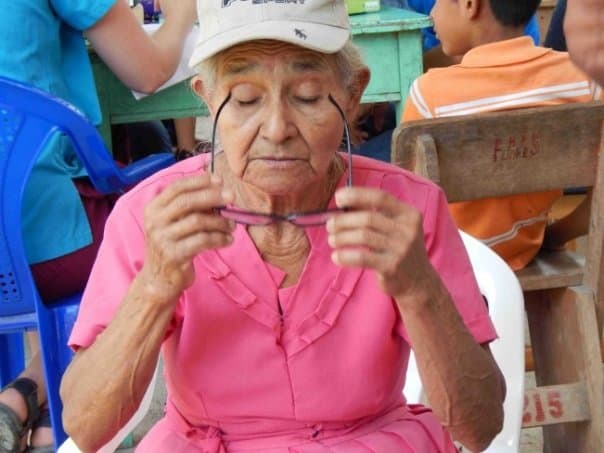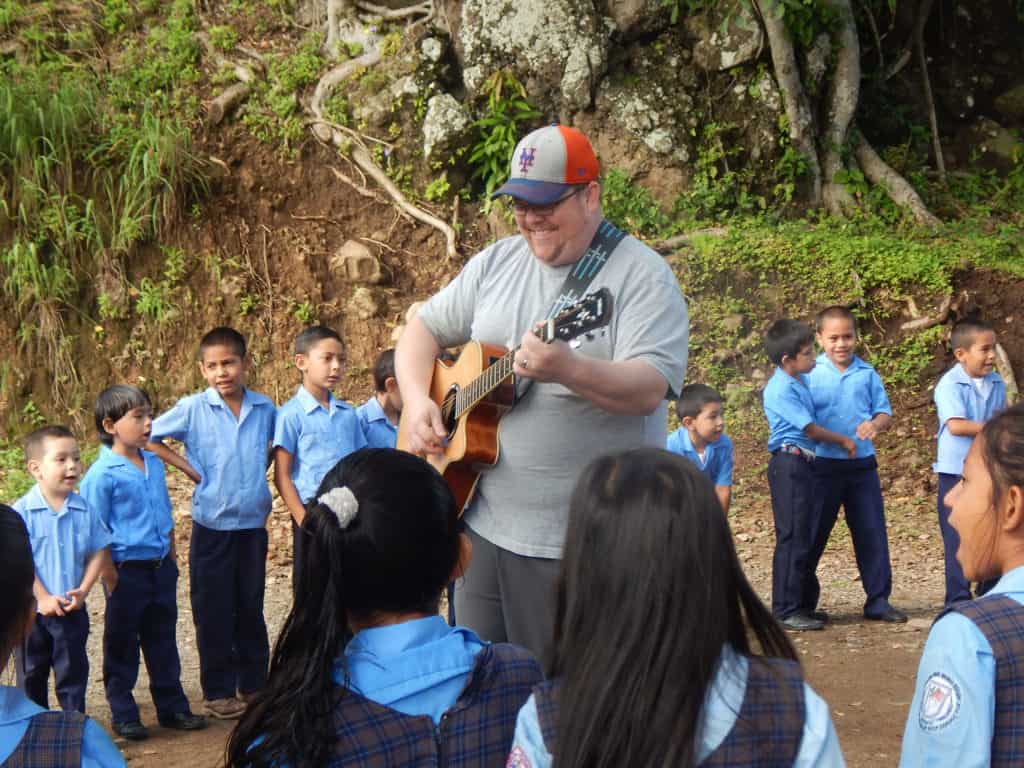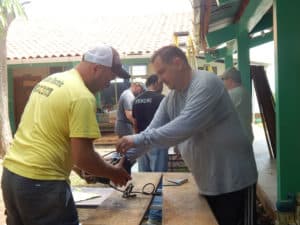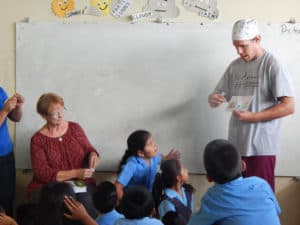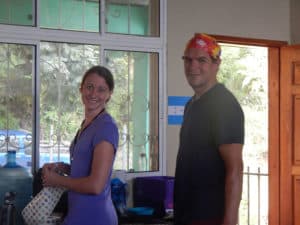Fun and Fulfilling
Over the course of twenty-six years, thousands of individuals and hundreds of professional and academic associations have shouldered the mission of improving the quality of life on the Frontera by visiting Honduras on service trips. They have paved the way for the ongoing provision of quality health care and established the infrastructure to support that ongoing care. Through dedication and commitment, through the sharing of expertise and knowledge, these associations and individuals have uprooted the embedded poverty that denied people basic health care and planted systems of sustainable empowerment. People live longer, healthier, more productive and fulfilling lives in strong communities. These individuals and groups will continue to visit and support and grow this sustainable system of quality health care delivery. Shoulder to Shoulder will support their dedication, commitment, and service.
Shoulder to Shoulder has become an expert in receiving medical professionals and students, sending them out to treat the people, and coordinating that service in relationship to our ongoing heath care service delivery. We’ve done it for so long, it’s become second nature. However, we are yet inexperienced when it comes to receiving and utilizing groups coming specifically to assist us in our evolving mission of education.
Laura and I nervously awaited the arrival of Genesee Valley Presbytery who came to visit us in Camasca. Though they came as a service group, they had no medical expertise and had no intention of providing health care. They came to exclusively work at our bilingual school. Laura and I know how to manage medical teams. Also, the medical teams have an inherent focus on their service in providing health care. But what would this group do, and how would we organize their efforts? In part it was a construction brigade to establish a rain water collection system at the school. In part it was a school brigade where they would offer games and exercises with the children. In part it was a resource brigade to stock and organize the shelves of our library. Their focus was disparate as were their personalities. In speaking to them on their first night in Honduras, I realized they were all different individuals and no one principle gave them a coherent organization. Some were here because they liked construction, some because they enjoyed singing and celebrating with the kids, and still others wanted to catalogue books. How would I do this? How would I herd these cats? My anxiety rose.
It was needless anxiety. I soon realized that there was indeed a common organizing principle to their service mission. It wasn’t a professional principle, though it was clear that the contractors, engineers, musicians, and teachers knew their stuff. It wasn’t so much a drive to realize specific objectives, though they accomplished incredible things. The organizing principle was much more profound than this. They all shared a generous spirit, a willingness to serve no matter what need was encountered, a singular respect for the people they met, and a driving desire to come to know in a meaningful way the children of our school and the people of Camasca. This was what we might call charm and grace. They had loads of it, and in six days they found a place of welcome in the hearts of our children and the people of Camasca.
I could simply focus here on what they accomplished because it impressed me beyond my expectations. They built a quality water collection system in about two days, making me scramble to find additional construction projects to keep them busy. They added six hundred books to our library, and organized a eclectic mess into an efficient store of knowledge and literature. They enlivened and enriched our students with song and spirit each morning. They visited other area schools, gifting them with their presence as well as with books and clothes. This success would certainly have been sufficient, but there was more.
They did it all and had tremendous fun doing it.
- “Papa Grande,” aka Adam, played his guitar, sang his songs, and corralled the smiles of our children.
- “Gopher,” aka Tony, busied himself in digging holes.
- Andy was forever ready with the right tool for the job.
- Jeff, the still, but deep waters, was always ready to help.
- Bill drew up plans and designs.
- Chris may have found a new vocation as a librarian coding books and stacking shelves.
- Whitney mastered the troops.
- Lori provided for all needs from a bottomless purse.
- Jan articulated the sacred privilege of reading.
- And as all this business went on, we found time to barb one another with groaning puns. Pat provided the ultimate symbol for this in carrying “Donkey Hotey” back to the states.
- We followed Dan’s challenge to us all by “super-sizing” our generosity and realizing the super-sized response in the appreciative embrace of the people of Camasca.
What wondrous things Shoulder to Shoulder has achieved over the course of twenty-five years in the dedication and commitment of professional service teams. True enough. I am certain that just as we have established a sustainable system of quality health care because of the generous service of medical mission teams, so too we will establish quality, sustainable education on the Frontera as we develop relationships with groups and individuals to shoulder this mission. It is always so impressive to see what we have built and accomplished. It is, however, so much more impressive when we find meaningful connections that bind us to the best of who we are. This is grace.


